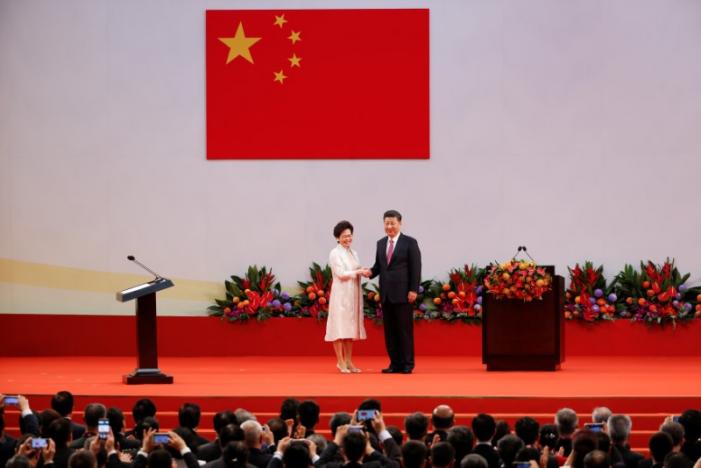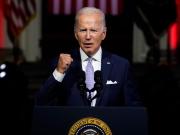Beijing said the national security law for Hong Kong is aimed at tackling separatist activity, terrorism, subversion, and collusion with foreign forces. But one of the key factors of the law is- Hong Kongers could face life imprisonment if they break the controversial law.
The legislation came into force on Wednesday but the full text was revealed hours later. The national security law was imposed by Beijing following widespread unrest and pro-democracy protests in Hong Kong, effectively undermining Hong Kong's freedom. There's another move looming large over Hong Kong in the form of the Great Firewall, which will be introduced soon.

It was in 1997 that the former British territory was returned to China under a unique agreement to protect certain freedoms that mainland China residents do not enjoy, including freedom of speech. However, Hong Kong leader Carrie Lam has defended the law and said that it filled a "gaping hole" in national security, but as per reports, Beijing-backed politicians admitted that she had not seen the draft of the law before committing.
Some two dozen Western countries and NATO expressed concerns over the law. The U.S. and the U.K. have urged China to reconsider the national security law, saying Beijing must preserve rights to assembly and free speech that were agreed upon when Hong Kong was returned to China. But China accused them of interfering in it internal matters and fomenting unrest in Hong Kong.
No Rights, No Freedom
The reaction began the moment the security law was signed by China's President Xi Jinping. Student activist Joshua Wong, who is also the founding member of the pro-democracy group Demosisto, warned that the city would "turn into a secret police state" and said he would be the potential "target" of the new law.
Meanwhile, Ted Hui, an opposition legislator, told BBC, "Our rights are (being) taken away; our freedom is gone; our rule of law, our judicial independence is gone. Beijing's promise to the world that Hong Kong will have a high degree of autonomy is proven to be a lie."
Dozens of people have been arrested in Hong Kong on Wednesday after the new law came into effect. Hong Kong police confronted a group of demonstrators gathered in the city center. At least 30 people were arrested for "unlawful assembly, violating the security law, obstructing police and possession of weapons". Those arrested included a man who was carrying a "Hong Kong Independence" flag.
Zhang Xiaming of the Hong Kong and Macau Affairs Office of the State Council defended it announcing, "We Chinese will not be scared by anyone. Gone are the days when we had to take cues from others."
Key Features of National Security Law
52 Countries Welcomed The Move?
As per the Chinese news organization CGTN, speaking at the 44th session of the United Nations Human Rights Council on Tuesday, June 30, Cuba on behalf of 52 countries welcomed its adoption. A representative of the communist-ruled country Cuba read out a joint statement signed by 52 countries as below:
"Non-interference in internal affairs of sovereign states is an essential principle enshrined in the Charter of the United Nations and a basic norm of international relations.
"In any country, the legislative power on national security issues rests with State, which in essence is not a human rights issue and therefore not subject to discussion at the Human Rights Council. We believe that every country has the right to safeguard its national security through legislation, and commend relevant steps taken for this purpose.
"In this context, we welcome the adoption of the decision by China's legislature to establish and improve a legal framework and enforcement mechanisms for the Hong Kong Special Administrative Region (HKSAR) for the purpose of safeguarding national security, as well as China's reaffirmation of adherence to 'One Country, Two Systems' guideline."









